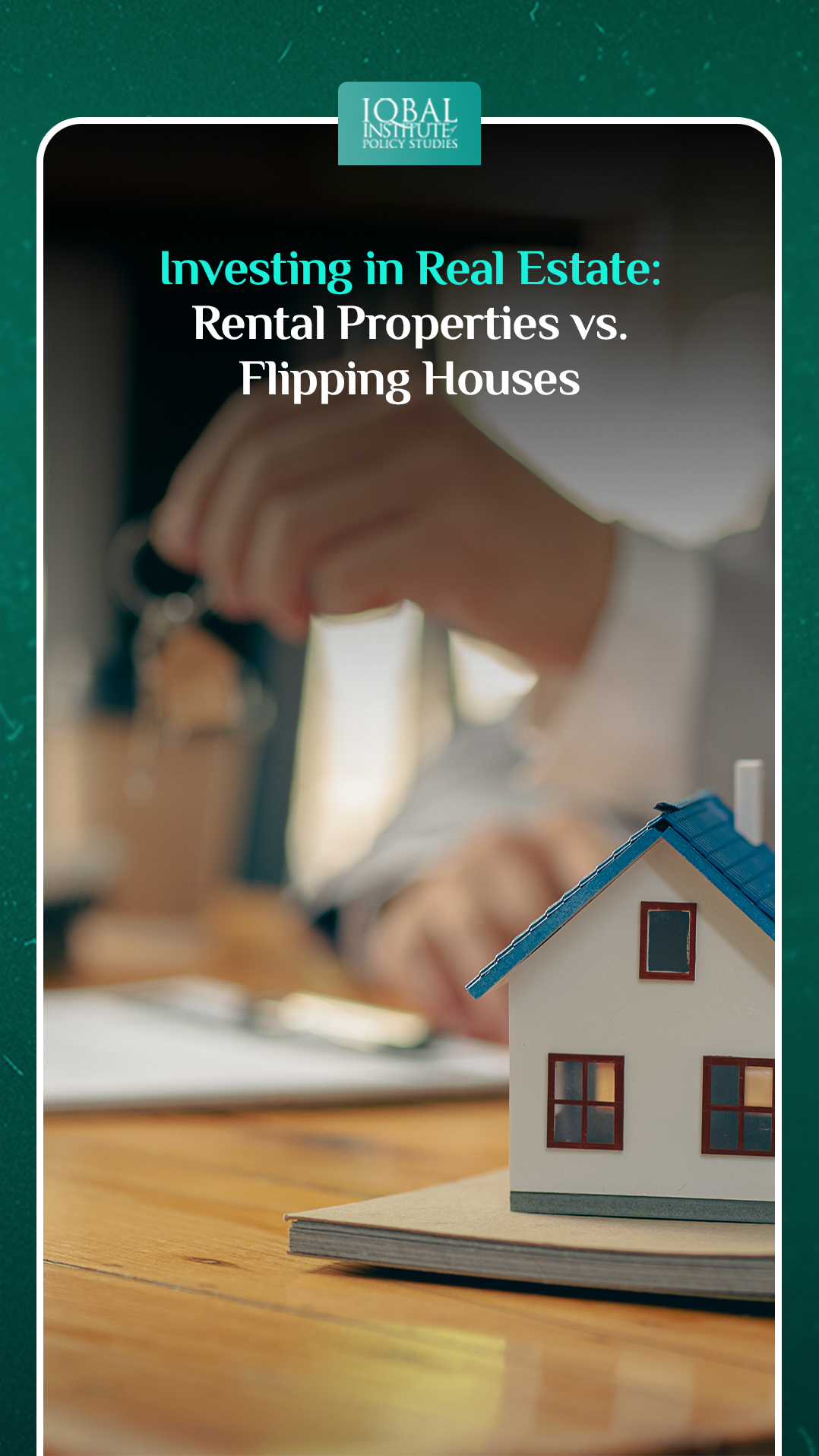Real estate investment is a popular and lucrative venture. It offers opportunities for individuals to grow their portfolios, generate passive income, and achieve their financial goals. However, within the vast industry of real estate, there are two primary investment strategies that have captured the attention of aspiring investors: rental properties and house flipping. Both rental properties and house flipping can be highly profitable, but they are fundamentally different approaches to real estate investment, each with its own set of advantages and challenges. Moreover, the choice between these two strategies can significantly impact one’s financial future, making it essential to understand the nuances of each before embarking on the real estate investment journey. Therefore, it is essential to choose the right strategy that aligns with the goals, resources, and risk tolerance. Understanding the strengths and limitations and choosing a strategy that aligns with the objectives is essential. Nonetheless, whether one opts for the stability of rental properties or the potential for quick profits in house flipping, real estate investment can be a rewarding journey when approached with knowledge and careful consideration.
Rental Properties
Rental property investment involves purchasing residential or commercial properties with the intention of leasing them to tenants. This strategy offers several advantages which are as follows.
Steady Monthly Income
One of the most significant advantages of rental properties is the consistent stream of rental income. Rental income provides a reliable cash flow that can contribute to financial stability.
Long-Term Wealth Building
Rental properties can be a powerful tool for building long-term wealth. As you pay down the mortgage and property values appreciate, your equity in the property grows over time.
Tax Advantages
Real estate investors enjoy various tax benefits, such as deductions for mortgage interest, property taxes, and property depreciation. These tax advantages can reduce your overall tax liability.
Cons of Investing in Rental Properties
The following points outline the disadvantages and downsides of investing in rental properties.
Property Management Challenges
Managing rental properties can be time-consuming and demanding. It involves tasks like finding tenants, dealing with maintenance issues, and handling legal matters.
Initial Costs and Ongoing Expenses
Acquiring rental properties often requires a substantial upfront investment. You will need to cover expenses like the down payment, closing costs, and ongoing maintenance and repairs.
Market Volatility
The real estate market can experience fluctuations, affecting property values and rental demand. Economic downturns or changes in local market conditions can impact your rental income.
Flipping Houses
House flipping, on the other hand, involves purchasing properties with the goal of renovating and reselling them for a profit. This strategy has its own set of advantages:
Potential for Quick Profits
House flipping can offer substantial profits in a relatively short period. If you can identify undervalued properties and execute cost-effective renovations, you can make a significant return on investment (ROI).
Creative Renovation Opportunities
House flipping allows you to unleash your creativity and design skills. You can transform distressed properties into appealing, modern homes, adding value along the way.
Variety of Projects
House flipping offers variety in terms of the types of properties you can work on. From single-family homes to multi-unit buildings, you can choose projects that match your expertise and preferences.
Cons of Investing in House Flipping
The following section will highlight the drawbacks and challenges of investing in house flipping.
High Financial Risk
House flipping can be financially risky, especially for inexperienced investors. Unexpected renovation costs, market downturns, or delays in selling the property can lead to losses.
Time-Intensive
Successful house flipping requires a significant time commitment. You will need to oversee renovations, manage contractors, and handle the selling process, which can be demanding and stressful.
Market Sensitivity
House flipping is highly sensitive to market conditions. If the real estate market experiences a downturn, you may struggle to sell the property at your desired price.
Factors to Consider
When choosing between rental properties and house flipping, consider the following factors:
Personal Goals and Risk Tolerance
Your investment goals and risk tolerance play a crucial role in your decision. If you prefer steady, long-term income and are risk-averse, rental properties may be the better choice. On the other hand, if you are comfortable with higher risk and seek quick returns, house flipping might be more appealing.
Market Conditions
Assess the current real estate market in your target area. Is it a buyer’s market or a seller’s market? Understanding market conditions can help you determine which strategy aligns with the prevailing trends.
Financial Resources
Evaluate your financial resources, including your available capital, credit score, and borrowing capacity. Rental properties typically require a more substantial upfront investment, while house flipping may demand access to short-term financing for renovations.
Real Estate Expertise
Consider your level of expertise in real estate investing. Rental properties may be more forgiving for novice investors, as they require less immediate decision-making and hands-on work. Additionally, house flipping demands a deeper understanding of property valuation, renovation costs, and market trends.
Location Considerations
The location of your investment properties is critical. Different markets may favor one strategy over the other. Thus, research the local real estate market to determine which approach is more likely to succeed in your area.
Conclusion
In the world of real estate investment, choosing between rental properties and house flipping depends on your goals, resources, and risk tolerance. Both strategies offer unique advantages and disadvantages. While some investors prefer to focus exclusively on one approach, others explore hybrid strategies that incorporate elements of both rental properties and house flipping.
Therefore, before making a decision, carefully assess your financial situation, market conditions, and personal preferences. It is essential to conduct thorough research, seek advice from experienced investors, and, if possible, consult with a financial advisor.
This article is written by Haneen Gul. Haneen is a research analyst at the Iqbal Institute of Policy Studies (IIPS).



Leave a Reply